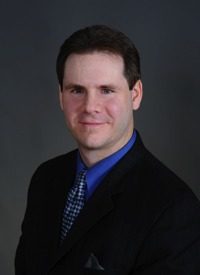
I will tell you why we don’t.
Because there is absolutely no logic behind how we “progress.”
In fact, it cannot even be called progress because the word implies movement toward a destination, and the progressives among us never define any such place. Instead, what we call progress is simply governed by what people have been conditioned to accept.
Ah, but the progressives who advocate for the homosexual agenda profess to be driven by high-minded ideals such as “equality,” “open-mindedness” and “tolerance,” some say? What pap. And the social engineers do know better.
Just consider two of them, Marshall Kirk and Hunter Madsen. While they might never have grasped the psychology behind their own sexual compulsion, they certainly understood how to manipulate public opinion well enough to become the homosexual movement’s Saul Alinskys. In their 1989 book After the Ball, they wrote about how they would not change minds, but hearts. And here is what they said about the use of victimology:
The purpose of victim imagery is to make straights feel very uncomfortable; that is, to jam with shame the self-righteous pride that would ordinarily accompany and reward their antigay belligerence, and to lay groundwork for the process of conversion by helping straights identify with gays and sympathize with their underdog status.
We not only should note that this tactic has worked well enough to give us hate-speech laws overseas and homosexual curricula on our shores, but that it also isn’t an appeal to reason. It is an appeal to emotion.
Now, the problem with being feelings-oriented is that emotion presents no moral boundaries; manipulate it the right way and you can engender sympathy for most anything. As for the faux-marriage crowd’s only intellectual argument (if it can be called such) – the notion that faux marriage is a matter of “human rights” – it also creates a slippery slope. After all, polygamists and those engaging in bestiality are human, too, so why should they be denied their conception of “marriage”? Are they less worthy of rights than are homosexuals?
Of course, the issue of rights really is a very simple one. The answer is that every adult already does have the right to marriage, which is correctly defined as the union between a man and woman. And this brings us to the proper response to the call for “gay marriage”:
It simply does not exist.
And you cannot have a right to that which does not exist.
The point is that a sane civilization wouldn’t allow some ne’er-do -wells to overturn a definition that has existed anywhere and everywhere for millennia merely because they have a social-change hissy fit. And when we do tacitly acknowledge the existence of “gay marriage” – by discussing whether “it” should be legalized, or by using the terms “heterosexual marriage” or “traditional marriage” (what would be the other side of that coin?) – we have already lost half the debate. For it lets the camel’s nose in the marriage tent.
“Ah,” traditionalists will now say, “yes, these activists are redefining marriage! That is the problem.”
Actually, no, it’s not.
In reality, such a statement gives them far too much credit. They are not redefining marriage.
They are “undefining” it.
Remember what I wrote about progress implying movement toward a destination? Well, faux-marriage activists never offer an alternative definition of marriage; they never say that it could be, for instance, the union between any two adults. And the fact is that they cannot do so. For to establish boundaries would render them just as “exclusive,” “intolerant,” and “narrow-minded” as they accuse traditionalists of being. It would acknowledge that the debate should not be just a childish tantrum about the oppressiveness of boundaries but a mature discussion about their necessity and where they should be set. So the progressives present no alternative vision; they simply say that the traditionalist one is wrong.
But this raises a few questions. If they cannot tell us what is the right conception of marriage, how can they credibly say that the traditional conception is the wrong one? If progressives cannot say what marriage is, how can they be so sure about what it isn’t? And how can they, with a straight face, claim that such a failure won’t allow for other conceptions of “marriage” to be legitimized as well? After all, an undefinition excludes nothing.
In other words, the application of reason places the faux-marriage progressives in a box. If they were to establish boundaries, their main argument — the equal-rights spiel — would go out the window; and when they don’t, their claim that they aren’t creating a slippery slope becomes laughable. Either way, they lose the debate.
Of course, this presupposes that reason will carry the day. And it is why progressives rely on emotional appeals: Logic gets in the way of their “progress” toward … well, they know not where. But before following them you may want to inquire, because I suspect that it is a certain place where there is no reason.



